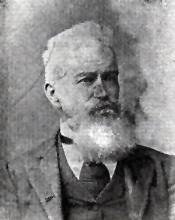A Quote by Richard P. Feynman
The real question of government versus private enterprise is argued on too philosophical and abstract a basis. Theoretically, planning may be good. But nobody has ever figured out the cause of government stupidity—and until they do (and find the cure), all ideal plans will fall into quicksand.
Related Quotes
Government-to-government foreign aid promotes statism, centralized planning, socialism, dependence, pauperization, inefficiency, and waste. It prolongs the poverty it is designed to cure. Voluntary private investment in private enterprise, on the other hand, promotes capitalism, production, independence, and self-reliance.
It is a popular error that bureaucracy is less flexible than private enterprise. It may be so in detail, but when large scale adaptations have to be made, central control is far more flexible. It may take two months to get an answer to a letter from a government department, but it takes twenty years for an industry under private enterprise to readjust itself to a fall in demand.
All the controversialists who have become conscious of the real issue are already saying of our ideal exactly what used to be said of the Socialists' ideal. They are saying that private property is too ideal not to be impossible. They are saying that private enterprise is too good to be true. They are saying that the idea of ordinary men owning ordinary possessions is against the laws of political economy and requires an alteration in human nature.
Year after year in Washington, budget debates seem to come down to an old, tired argument: on one side, those who want more government, regardless of the cost; on the other, those who want less government, regardless of the need....Government has a role, and an important role. Yet, too much government crowds out initiative and hard work, private charity and the private economy....Government should be active, but limited; engaged, but not overbearing.
Stripped of all its covering, the naked question is, whether ours is a federal or consolidated government; a constitutional or absolute one; a government resting solidly on the basis of the sovereignty of the States, or on the unrestrained will of a majority; a form of government, as in all other unlimited ones, in which injustice, violence, and force must ultimately prevail.
The bad consequences of a government program usually don't show up immediately. And the delay may be long enough to hide the connection between the program and its results. So government never has to say it's sorry - never has to take responsibility for ht misery it causes. Instead it can blame everything on personal greed, profit-hungry corporations, and the 'private sector.' And the government's cure for the problems is to impose bigger programs, more regulation and higher taxes.




































